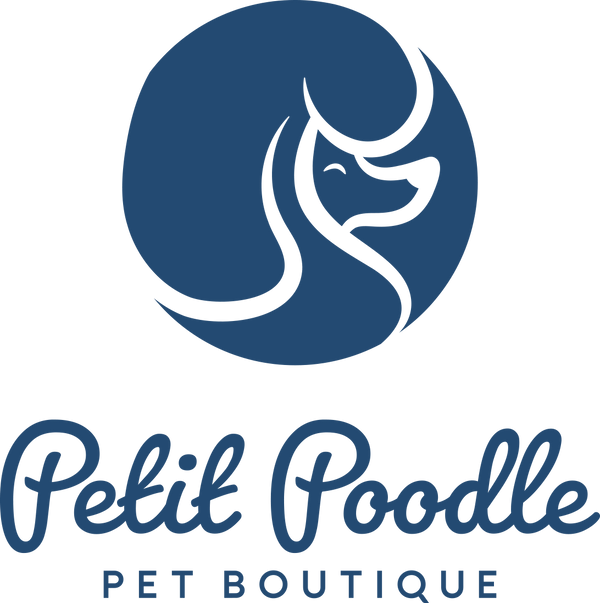If you're a dog owner, you've probably seen the term "grain-free" on pet food packaging and wondered what it's all about. Is grain-free food healthier for dogs, or is it just a marketing trend? This article breaks it down in simple terms—explaining what grain-free dog food is, its pros and cons, and busting some common myths along the way.
What Is Grain-Free Dog Food?
Grain-free dog food is exactly what it sounds like food that does not contain grains such as wheat, corn, rice, barley, or oats. Instead of these ingredients, manufacturers often use alternatives like sweet potatoes, lentils, peas, or chickpeas to provide carbohydrates.
Grain-free diets have gained popularity among pet owners who believe they are more natural or easier for dogs to digest. But the truth is a bit more nuanced.
Pros of Grain-Free Dog Food
-
Helpful for Dogs with Grain Allergies
Some dogs have sensitivities or allergies to grains. If your dog shows signs like itching, ear infections, or digestive issues, switching to a grain-free diet may help—especially if recommended by your vet. -
Healthier Skin and Coat
Grain-free diets often include more meat and healthy fats, which can support healthier skin and a shinier coat. Some owners report less shedding and fewer dry skin issues. -
Easier on Sensitive Stomachs
Dogs with sensitive stomachs might do better on diets that have fewer ingredients and avoid grains. Grain-free options sometimes use simpler, more digestible carbs like sweet potatoes. -
Higher Protein Content
Many grain-free formulas are packed with more protein, which supports strong muscles and energy levels. This can be beneficial for active or working dogs.
Cons of Grain-Free Dog Food
-
Potential Heart Health Concerns
There have been concerns about a possible link between grain-free diets and a heart condition called Dilated Cardiomyopathy (DCM). While research is ongoing, some grain-free foods that are high in legumes like peas and lentils may lack key nutrients that support heart health. -
Not Always Necessary
Most dogs don’t actually need to avoid grains. True grain allergies are rare in dogs. Whole grains like brown rice and oatmeal can provide fiber and important nutrients. -
Can Be More Expensive
Grain-free foods often cost more than regular dog food, and if your dog doesn’t have a medical reason to go grain-free, the extra cost may not be worth it. -
Nutritional Gaps if Poorly Formulated
Not all grain-free foods are created equal. Some may skip grains but still use lower-quality ingredients or fillers. It's important to choose a well-balanced formula from a trusted brand.
Common Myths About Grain-Free Dog Food
Myth #1: Grain-Free Is Always Healthier
Grain-free doesn’t automatically mean better. What matters more is the overall quality of the ingredients and whether the food meets your dog’s nutritional needs.
Myth #2: Dogs Can’t Digest Grains
Dogs are not wolves. Over time, dogs have evolved to digest grains quite well. Many dogs do just fine on diets that include wholesome grains.
Myth #3: Grain-Free Cures All Allergies
If your dog has food allergies, it’s more likely to be from proteins like beef, chicken, or dairy—not grains. A grain-free diet won’t necessarily solve allergy issues unless the actual allergen is removed.
Myth #4: All Grain-Free Foods Are the Same
There’s a wide range of Grain Free Dog Food on the market. Some are high-quality and well-balanced, while others rely on fillers or lack essential nutrients. Always read the label and do your research.
Should You Choose Grain-Free Dog Food?
Grain-free dog food can be a good choice if:
- Your vet has diagnosed your dog with a grain allergy or sensitivity
- You’ve tried grain-inclusive foods and still notice issues
- You choose a high-quality, balanced grain-free brand
But for most dogs, grain-inclusive food is perfectly healthy, more affordable, and sometimes even more nutritious. The best diet for your dog depends on their unique needs, lifestyle, age, and health status.
Final Thoughts
Grain-free dog food isn’t a one-size-fits-all solution. While it offers benefits for dogs with certain health issues, it’s not necessarily superior for every pet. The key is choosing high-quality food grain-free or not that provides complete and balanced nutrition.
Before making any major changes to your dog’s diet, always consult with your veterinarian. They can help you decide if grain-free food is truly the right choice for your pup.
Looking for trusted advice and top picks for your pup? Visit Petit Poodle for expert tips, product reviews, and everything you need to help your dog live their happiest, healthiest life.

